
Harper: Liberia's Coastal Haven
Harper, a charming coastal town in Liberia, is a hidden gem waiting to be discovered. Situated at the southeastern tip of the country, Harper offers a unique blend of history, culture, and natural beauty that will captivate any traveler. The town is named after Robert Goodloe Harper, a prominent American politician, and is the capital of Maryland County. Its rich history is evident in the colonial architecture that dots the landscape, offering a glimpse into the past. One of Harper's standout features is its pristine beaches. With golden sands and clear blue waters, the beaches here are perfect for relaxation and water activities. The local fishing community adds a vibrant touch to the coastal scenery, and you can often see brightly colored boats bobbing in the water. For those interested in marine life, the coastal waters are home to various species of fish, making it a great spot for fishing enthusiasts. Nature lovers will also appreciate Harper's lush greenery and diverse wildlife. The nearby Sapo National Park, Liberia's largest protected area, offers opportunities for hiking and wildlife spotting. The park is home to several endangered species, including the pygmy hippopotamus and forest elephants. Bird watchers will find a paradise here, with a variety of exotic birds to observe. Culturally, Harper is a melting pot. The town hosts several festivals throughout the year, celebrating its rich traditions and vibrant community life. The local markets are a treasure trove of handmade crafts, traditional garments, and fresh produce. Engaging with the friendly locals will provide a deeper understanding of the Liberian way of life and its rich cultural tapestry.
Local tips in Harper
- Visit the local markets early in the morning for the freshest produce and unique handmade crafts.
- Carry insect repellent and wear long sleeves when exploring Sapo National Park to protect against insects.
- Respect local customs and traditions, especially during festivals and community events.
- Hire a local guide for a richer experience and deeper insights into Harper's history and culture.
- Check the weather forecast before planning beach activities to avoid the rainy season.
Harper: Liberia's Coastal Haven
Harper, a charming coastal town in Liberia, is a hidden gem waiting to be discovered. Situated at the southeastern tip of the country, Harper offers a unique blend of history, culture, and natural beauty that will captivate any traveler. The town is named after Robert Goodloe Harper, a prominent American politician, and is the capital of Maryland County. Its rich history is evident in the colonial architecture that dots the landscape, offering a glimpse into the past. One of Harper's standout features is its pristine beaches. With golden sands and clear blue waters, the beaches here are perfect for relaxation and water activities. The local fishing community adds a vibrant touch to the coastal scenery, and you can often see brightly colored boats bobbing in the water. For those interested in marine life, the coastal waters are home to various species of fish, making it a great spot for fishing enthusiasts. Nature lovers will also appreciate Harper's lush greenery and diverse wildlife. The nearby Sapo National Park, Liberia's largest protected area, offers opportunities for hiking and wildlife spotting. The park is home to several endangered species, including the pygmy hippopotamus and forest elephants. Bird watchers will find a paradise here, with a variety of exotic birds to observe. Culturally, Harper is a melting pot. The town hosts several festivals throughout the year, celebrating its rich traditions and vibrant community life. The local markets are a treasure trove of handmade crafts, traditional garments, and fresh produce. Engaging with the friendly locals will provide a deeper understanding of the Liberian way of life and its rich cultural tapestry.
When is the best time to go to Harper?
Iconic landmarks you can’t miss
Mamba Point Hotel
Experience luxury and comfort at Mamba Point Hotel in Monrovia, where stunning ocean views and exceptional service await every traveler.

RLJ Kendeja Resort & Villas
Discover the serene luxury of RLJ Kendeja Resort & Villas, your ultimate beachfront escape in Liberia, combining relaxation, adventure, and local culture.

National Museum of Liberia
Explore Liberia's cultural heritage at the National Museum, showcasing artifacts and stories that define a nation.
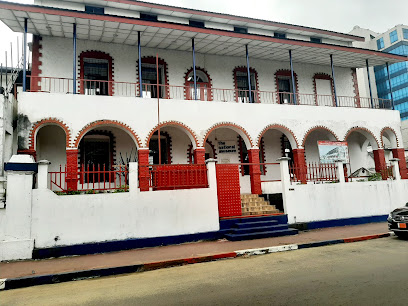
Kpatawee Waterfall
Discover the enchanting Kpatawee Waterfall in Lawe, Liberia, a breathtaking natural wonder perfect for adventure and relaxation.
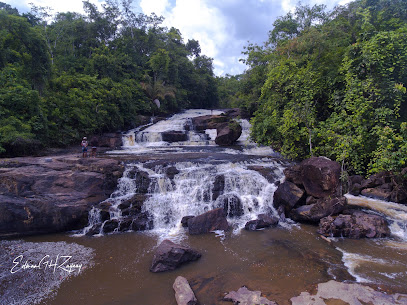
Totalreservat Berg Nimba
Explore Totalreservat Berg Nimba, a UNESCO World Heritage site in Guinea, offering stunning landscapes and rich biodiversity for nature enthusiasts.
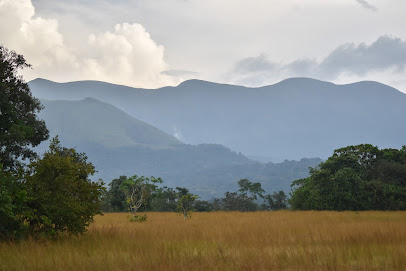
Ministry of Information, Culture & Tourism
Explore Liberia's rich heritage and vibrant tourism at the Ministry of Information, Culture & Tourism in Monrovia, your essential travel resource.
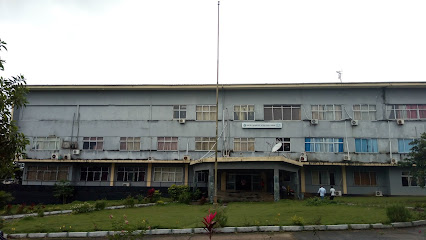
Waterside Market
Experience the vibrant local culture and flavors at Waterside Market in Monrovia, where every stall tells a story and every visit is an adventure.
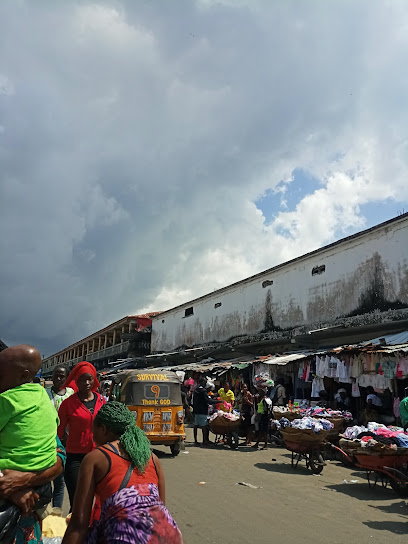
Wulki Farm
Experience tranquility and local charm at Wulki Farm, the perfect retreat for travelers in Liberia's Uray Farm Community.
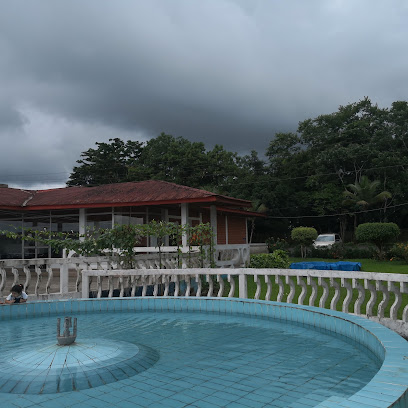
Tubman Beach
Discover the serene beauty and rich heritage of Tubman Beach, a historical landmark in Harper, Liberia, perfect for relaxation and cultural exploration.
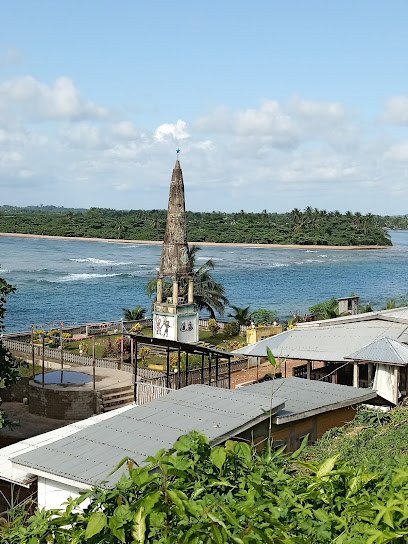
Matadi Central Mosque
Explore the Matadi Central Mosque in Monrovia, a beautiful site of Islamic architecture and community spirit, enriching your cultural journey in Liberia.
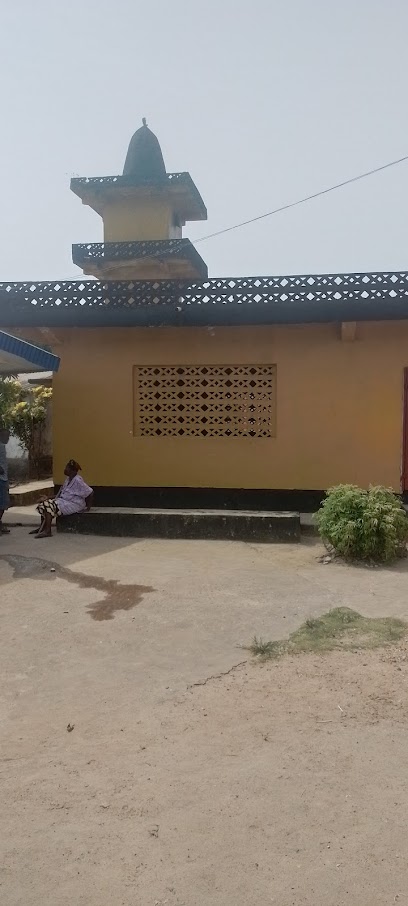
Trip Makers Harper
Explore Trip Makers Harper: A Cultural Gem in Liberia, Where Nature and Tradition Unite for an Unforgettable Adventure.
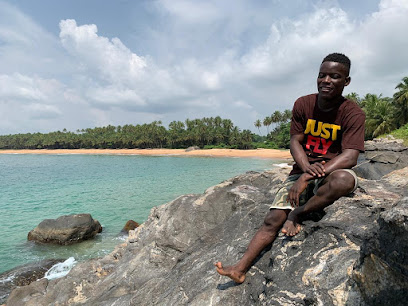
Jos Travel and Tours Inc
Discover the essence of Monrovia, Liberia, with Jos Travel and Tours Inc—your gateway to unforgettable adventures and cultural experiences.
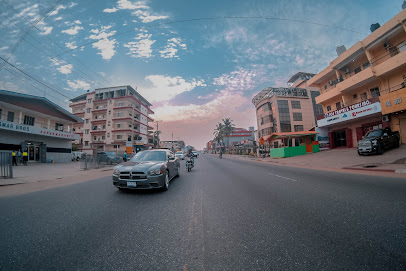
William Harper Residence
Explore the William Harper Residence, a captivating historical landmark in Harper, Liberia, showcasing the region's rich cultural heritage and architectural beauty.
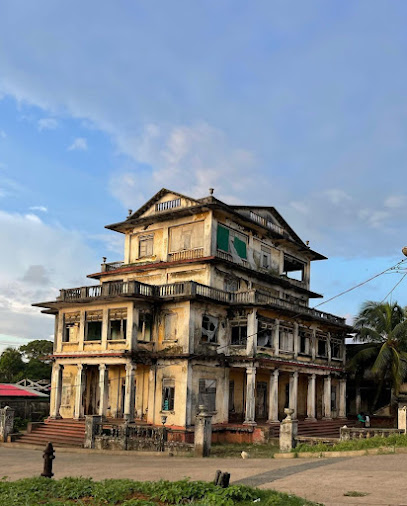
Joseph Jenkins Roberts Monument
Explore the Joseph Jenkins Roberts Monument, a cultural landmark in Monrovia, celebrating Liberia's first president and the nation's rich history.

Gabriel Tucker Bridge
Experience the iconic Gabriel Tucker Bridge in Monrovia, Liberia - a vibrant symbol of unity, culture, and stunning views.

Unmissable attractions to see
Trip Makers Harper
Experience the vibrant culture and scenic beauty of Trip Makers Harper, a must-visit tourist attraction in Liberia.
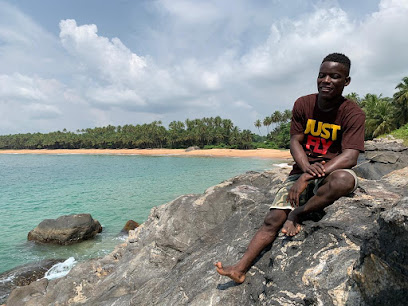
Dolly Beach
Discover Dolly Beach in Harper, Liberia: a serene coastal haven with pristine sands, clear waters, and tranquil beauty.
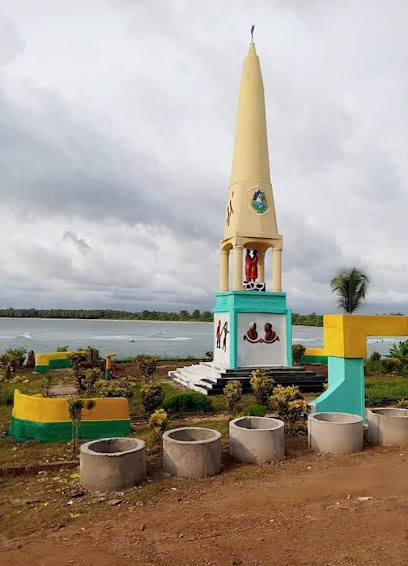
Putukeh Beach
Discover Putukeh Beach in Harper, Liberia: a tranquil escape offering serene shores and breathtaking sunsets on the Atlantic coast.
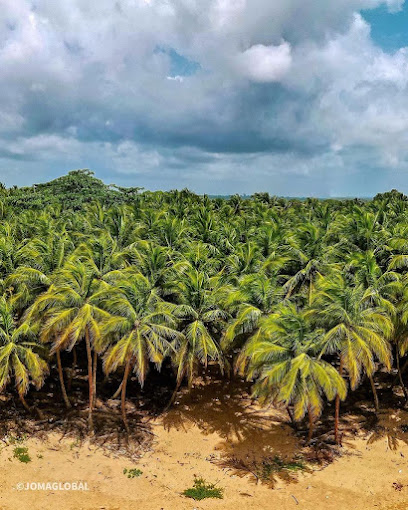
Southernmost point of Liberia
Explore the breathtaking Southernmost Point of Liberia, where stunning ocean views meet the rich cultural heritage of this vibrant coastal region.

Rocktown Beach
Discover the serene beauty of Rocktown Beach in Liberia: a tranquil escape offering unspoiled sands and a taste of local culture.

Essential places to dine
FuZion D'Afrique Restaurant
Discover the vibrant flavors of Liberia at FuZion D'Afrique Restaurant – where local meets global in a lively atmosphere.
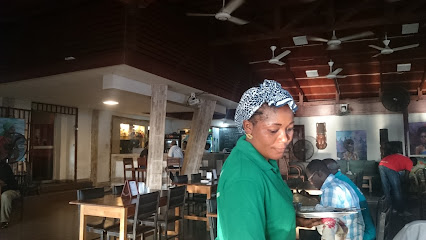
Diana Restaurant
Discover delightful flavors at Diana Restaurant in Monrovia - where local cuisine meets international charm for an unforgettable dining experience.
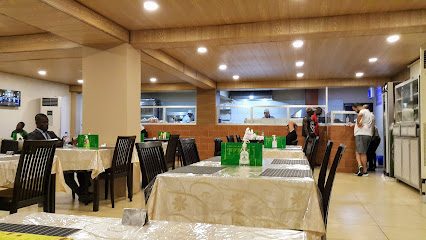
Evelyn's Cuisine
Experience authentic Liberian cuisine at Evelyn's Cuisine in Monrovia – a delightful blend of tradition and flavor awaits you.
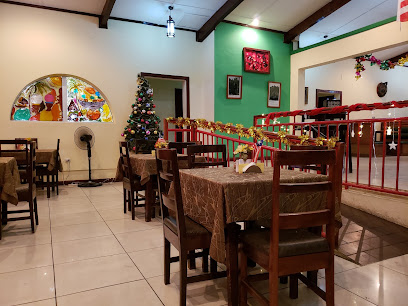
The Hub Diner
Experience the vibrant flavors of Liberia at The Hub Diner in Monrovia - where local cuisine meets warm hospitality.
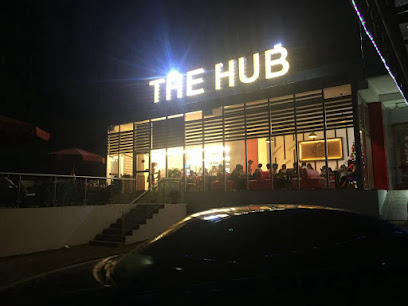
Embassy Suites Hotel & Restaurant
Discover comfort and culinary excellence at Embassy Suites Hotel & Restaurant in Mamba Point, Monrovia - your gateway to Liberia's flavors.

Mama Susu's Restaurant
Experience authentic Liberian cuisine at Mama Susu's Restaurant in Monrovia—where flavors meet culture!
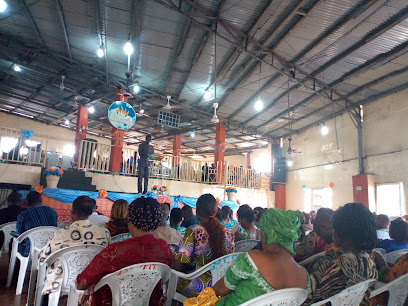
The Cape Restaurant
Experience the flavors of Liberia at The Cape Restaurant in Monrovia - where local ingredients meet global culinary art.
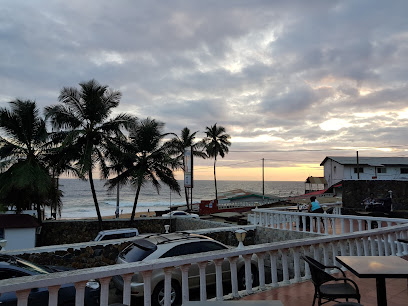
Ma Ju's & The Burger Spot
Discover the vibrant tastes of Liberia at Ma Ju's & The Burger Spot - where delicious burgers meet local flavors in a lively atmosphere.
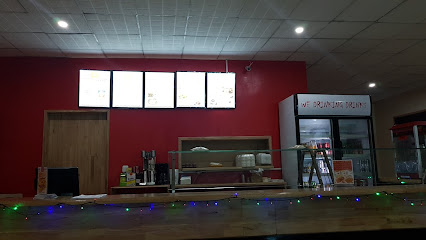
Pandora's Basket
Discover authentic Liberian cuisine at Pandora's Basket in Monrovia - where every meal tells a story.
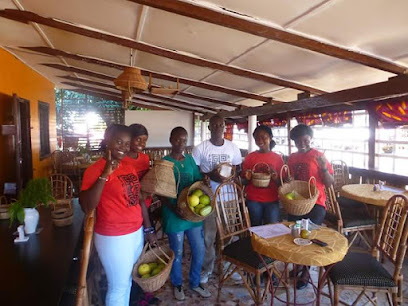
Front porch
Experience authentic Liberian cuisine in a cozy atmosphere at Front Porch – a must-visit restaurant in Harper.
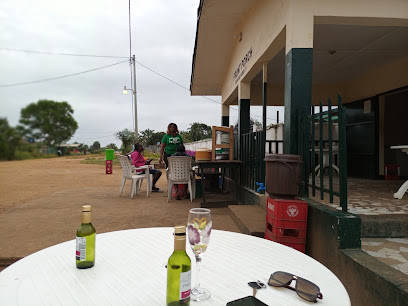
Boby's Teashop
Experience authentic Liberian cuisine at Boby's Teashop in Harper - where every dish tells a story.
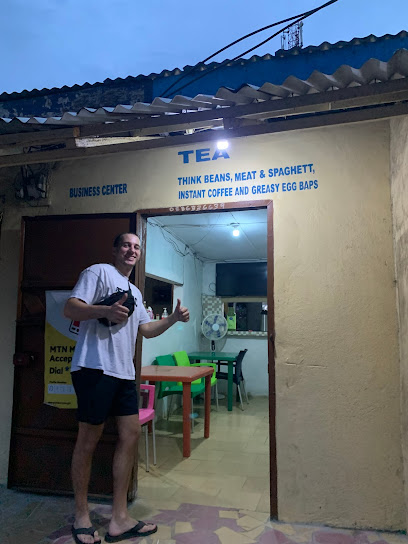
Tiktok Restaurant
Experience the vibrant flavors of Liberia at Tiktok Restaurant - where fast food meets local culture.
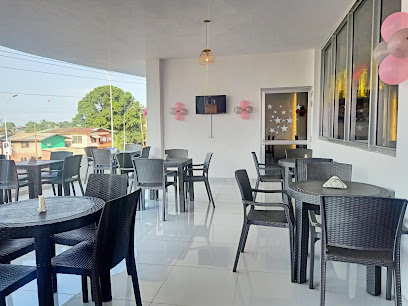
CoastersRestoPub
Experience the vibrant culinary scene at CoastersRestoPub in Monrovia - where local flavors meet international cuisine for an unforgettable dining experience.
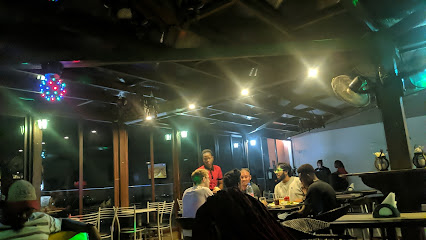
Cape Palmas Beach
Experience tranquility at Cape Palmas Beach with its golden sands and inviting waters, perfect for relaxation and exploration.
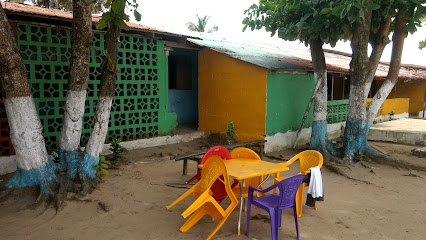
Lake Shepherd CO.
Discover authentic Liberian flavors at Lake Shepherd in Harper - a must-visit culinary destination for every traveler.
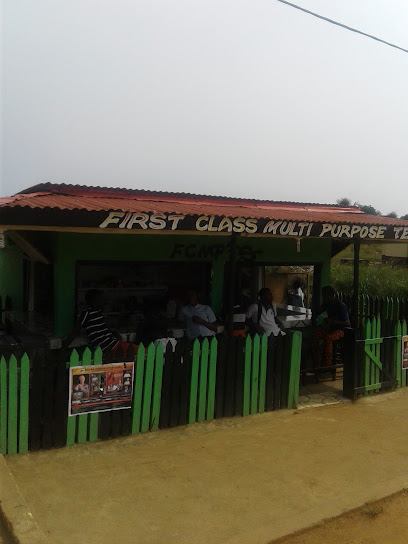
Markets, malls and hidden boutiques
Boby's Teashop
Experience the warm hospitality of Boby's Teashop in Harper, where delicious flavors and local culture blend seamlessly.
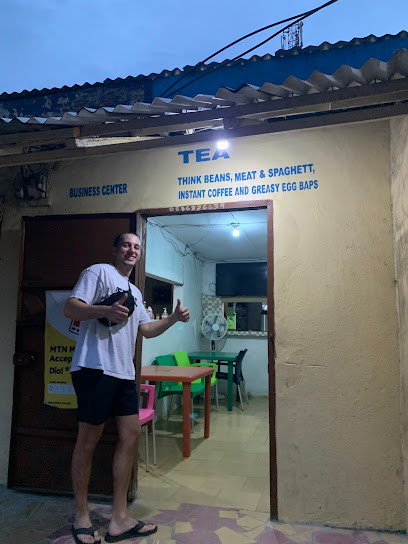
Tchoin Tire Repair Shop
Experience reliable tire repair services at Tchoin Tire Repair Shop in Harper, Liberia, ensuring your journey is safe and smooth.

Classical Man's Tea Shop
Explore the rich flavors and warm hospitality of Classical Man's Tea Shop, a delightful destination for tea lovers in Harper, Liberia.
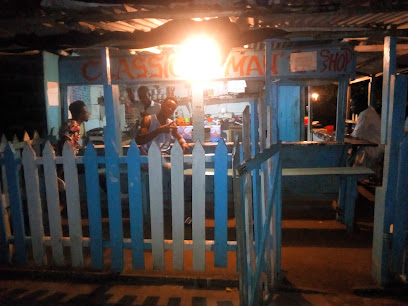
St Joseph Enterprise
Explore St Joseph Enterprise, a lively market in Harper, Liberia, where local culture blends with unique shopping experiences and delicious cuisine.
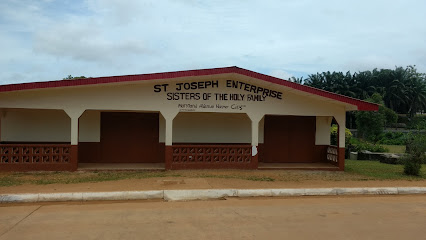
Abd Ar-Rahman Misrî Shop
Explore unique local fashion at Abd Ar-Rahman Misrî Shop in Helomeh, Liberia – a treasure trove for style enthusiasts and cultural explorers.
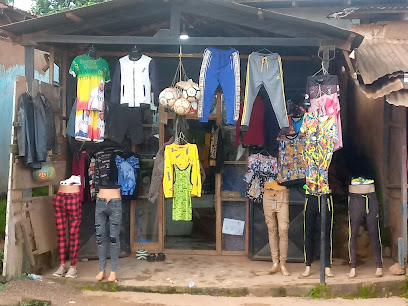
T. Bonyenor Planet Business Center
Discover unique fashion at T. Bonyenor Planet Business Center, Harper's premier clothing store reflecting Liberia's vibrant culture.
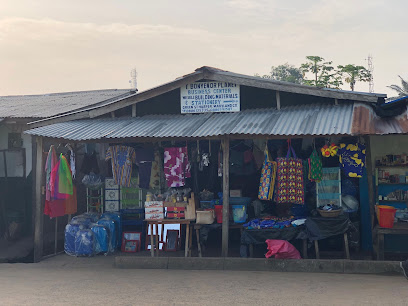
KD Barbing Shop
Discover KD Barbing Shop in Harper, Liberia - a premier grooming destination for tourists seeking quality haircuts and a taste of local culture.

Unity Tailoring Center
Discover the art of tailoring at Unity Tailoring Center, where quality craftsmanship meets the essence of Liberian culture.
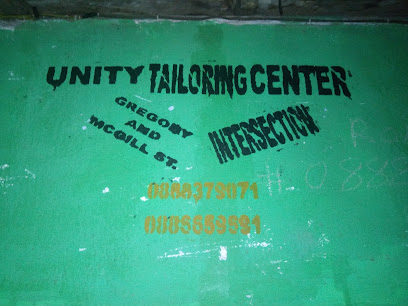
Bro Toe Medicine Shop
Explore Harper's local pharmacy, Bro Toe Medicine Shop, for all your medical needs – a trusted stop for health supplies in Liberia.

Amadou L.Diallo
Experience vibrant shopping and local culture at Amadou L. Diallo Mall in Pleebo, Liberia, a must-visit destination for all tourists.
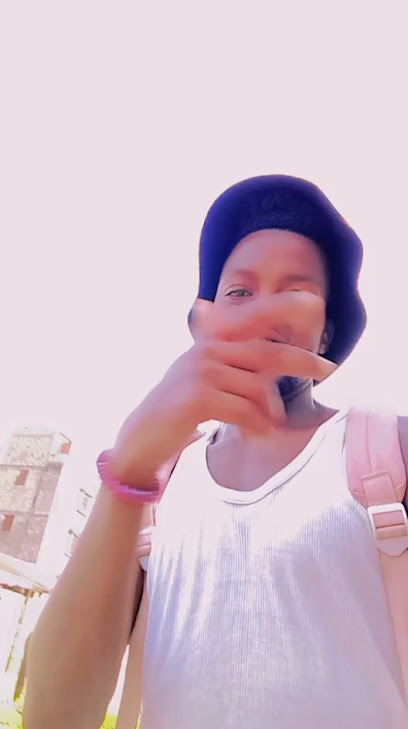
Jalloh Infinix Store
Explore the Jalloh Infinix Store in Harper for top-notch electronics and a vibrant shopping experience that captures the essence of modern Liberia.
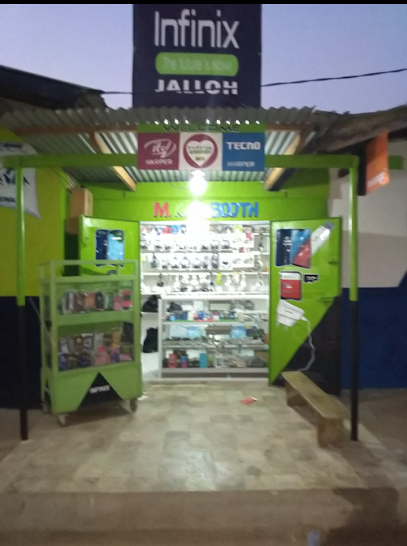
Jalloh Infinix
Experience the vibrant shopping scene at Jalloh Infinix in Harper, Liberia, where local culture meets modern retail and dining.
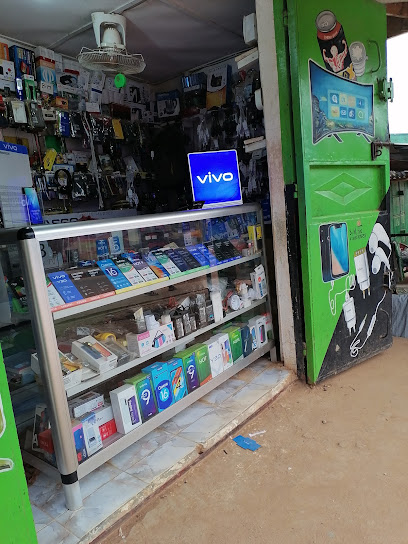
Abdusalam Tea Shop
Experience the essence of local culture at Abdusalam Tea Shop, where every sip of tea tells a story amid the vibrant atmosphere of Harper, Liberia.
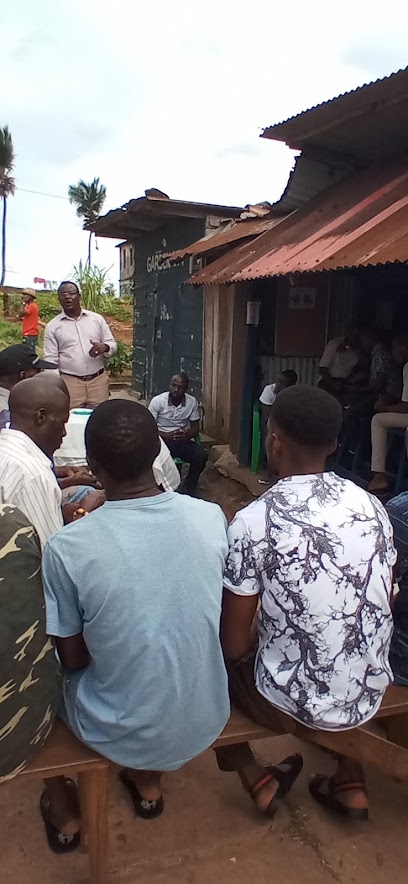
Abdoulaye D. Diallo Shopping Center
Experience the vibrant culture of Liberia at Abdoulaye D. Diallo Shopping Center, your go-to destination for unique home goods and local craftsmanship.

Lawrence Gaymore Business Center
Explore the latest electronics and experience local innovation at Lawrence Gaymore Business Center in Pleebo, Liberia.
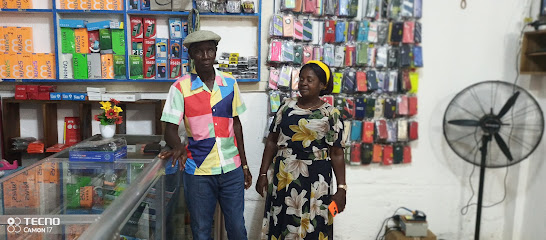
Essential bars & hidden hideouts
Shooters Sports Bar & Lounge
Experience the vibrant atmosphere of Shooters Sports Bar & Lounge in Monrovia, where relaxation meets local flavor and entertainment.
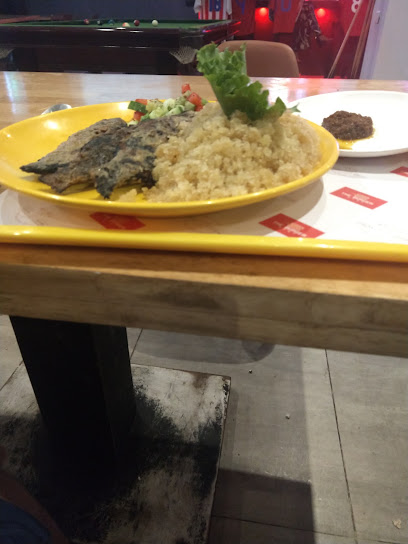
Vibes Lounge &Grill
Experience vibrant nightlife at Vibes Lounge & Grill in Monrovia, where delicious food and drinks meet a lively atmosphere perfect for socializing.
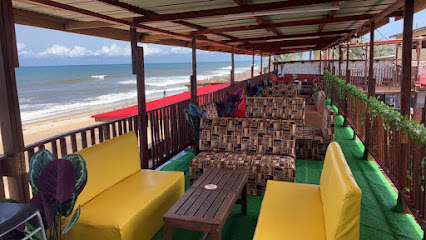
Exodus Bar
Discover the vibrant nightlife at Exodus Bar in Helomeh, where locals and travelers come together for drinks, music, and unforgettable experiences.
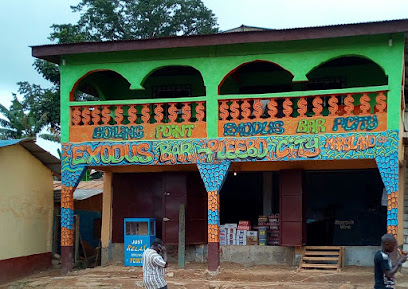
CoastersRestoPub
Discover the vibrant flavors and lively atmosphere at CoastersRestoPub in Monrovia, where local and international cuisine unite for an unforgettable dining experience.
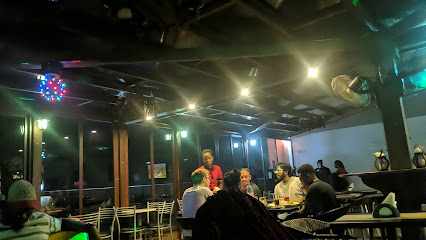
Congo Town Back Road
Experience the vibrant heart of Monrovia at Congo Town Back Road, where local culture meets refreshing drinks and unforgettable memories.
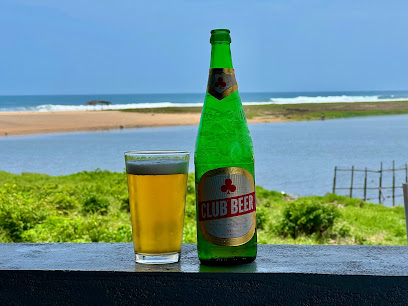
European Bar & Restaurant
Experience the vibrant tastes of Europe in the heart of Monrovia at the charming European Bar & Restaurant.
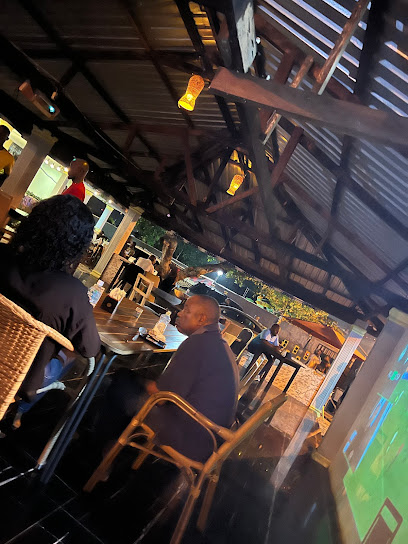
Twisters VVIP
Experience the vibrant nightlife of Monrovia at Twisters VVIP, where great drinks and lively entertainment await.
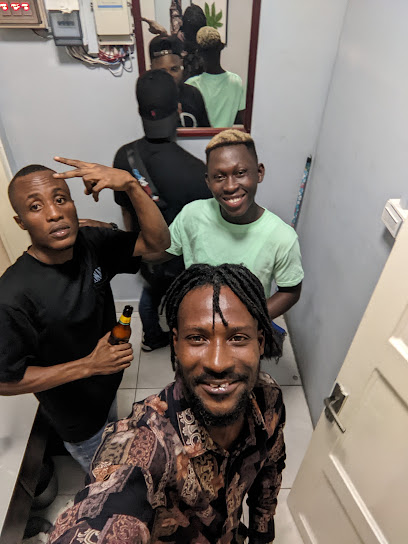
Vibes Bar, Grill & Boutique
Experience the vibrant flavors of Monrovia at Vibes Bar, Grill & Boutique, where local cuisine meets a lively atmosphere.

Sophie's Sport Bar & Grill
Discover the vibrant atmosphere of Sophie's Sport Bar & Grill in Harper, Liberia, where sports meet incredible food in a friendly setting.
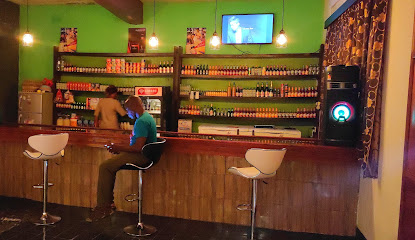
704 Bar and Restaurant
Experience the vibrant nightlife of Buchanan at 704 Bar and Restaurant, where local flavors meet lively entertainment in a welcoming atmosphere.
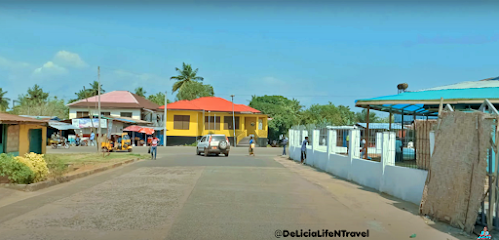
Club Dusty (Theresa Shop)
Discover the lively atmosphere of Club Dusty in Harper, Liberia, where locals and tourists gather for unforgettable nights filled with fun and laughter.

Upfront Restaurant and Bar
Discover the vibrant culinary and nightlife experience at Upfront Restaurant and Bar in Helomeh, Liberia, where local culture meets delicious flavors.

Champions Bar & Restaurant
Experience the flavors of Liberia at Champions Bar & Restaurant in Barclayville, where delightful cuisine meets a warm, welcoming atmosphere.
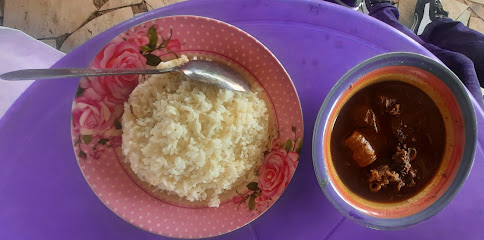
Local Phrases about Harper
-
- HelloSai
[sai] - GoodbyeNya
[nya] - YesEhn
[ehn] - NoNoh
[noh] - Please/You're welcomeKia
[kia] - Thank youTengki
[teng-ki] - Excuse me/SorrySai-Kio
[sai-kyo] - How are you?How deh?
[how deh?] - Fine. And you?Fine. Na yu?
[fine. na yu?] - Do you speak English?Yu sabi tok inglish?
[yu sa-bee tok in-glish?] - I don't understandMi no sabi
[mi no sa-bee]
- HelloSai
-
- I'd like to see the menu, pleaseMi deh wan see di menu, plis
[mi deh wan see di menu, plis] - I don't eat meatMi no deh eat mii
[mi no deh eat mii] - Cheers!Cheers!
[cheers!] - I would like to pay, pleaseMi deh wan pay, plis
[mi deh wan pay, plis]
- I'd like to see the menu, pleaseMi deh wan see di menu, plis
-
- Help!Sos
[sos] - Go away!Go weh!
[go weh!] - Call the Police!Kol di Police!
[kol di police!] - Call a doctor!Kol dokita!
[kol do-ki-ta!] - I'm lostMi loss
[mi loss] - I'm illMi sik
[mi sik]
- Help!Sos
-
- I'd like to buy...Mi deh wan buy...
[mi deh wan buy...] - I'm just lookingMi jis di luk
[mi jis di luk] - How much is it?How moch dis?
[how moch dis?] - That's too expensiveDis wan too moch
[dis wan too moch] - Can you lower the price?Yu fit lowa di praes?
[yu fit lowa di praes?]
- I'd like to buy...Mi deh wan buy...
-
- What time is it?Wetin tahm dis?
[we-tin tahm dis?] - It's one o'clockNa wan ohklok
[na wan oh-klok] - Half past (10)Haf paas (10)
[haf paas (10)] - MorningMornin
[mor-nin] - AfternoonAftanun
[af-ta-nun] - EveningIvinin
[i-vi-nin] - YesterdayYesideh
[ye-si-deh] - TodayTideh
[ti-deh] - TomorrowTomara
[to-ma-ra] - 1Wan
[wan] - 2Tu
[tu] - 3Tri
[tri] - 4Fo
[fo] - 5Faiv
[faiv] - 6Siks
[siks] - 7Seven
[sev-en] - 8Eit
[eit] - 9Nain
[nain] - 10Ten
[ten]
- What time is it?Wetin tahm dis?
-
- Where's a/the...?We deh di...?
[we deh di...?] - What's the address?Wetin da adres?
[we-tin da a-dres?] - Can you show me (on the map)?Yu fit so mi (pan di map)?
[yu fit so mi (pan di map)?] - When's the next (bus)?Wen di neks (bus)?
[wen di neks (bus)?] - A ticket (to ....)Wan tiket (to ....)
[wan ti-ket (to ....)]
- Where's a/the...?We deh di...?
History of Harper
-
Harper, originally known as Cape Palmas, was founded in 1833 by the Maryland State Colonization Society. The organization aimed to resettle free African Americans in Africa. The town was named after Robert Goodloe Harper, a prominent American politician and supporter of the colonization movement.
-
Harper became an important settlement for the Americo-Liberians, freed African Americans who resettled in Liberia. The town served as the capital of the short-lived Republic of Maryland, which existed from 1834 until it joined the Republic of Liberia in 1857.
-
The architectural landscape of Harper reflects its colonial past, with numerous 19th-century buildings. Notable structures include the old Maryland in Liberia Statehouse and several well-preserved colonial homes, which give visitors a glimpse into the town’s historical significance.
-
Cape Palmas is not only a geographical landmark but also a cultural touchstone for the people of Harper. The cape is the site of traditional ceremonies and local festivals, which highlight the rich cultural heritage of the Grebo people, the indigenous ethnic group in the area.
-
Harper is home to the first campus of Cuttington College (now Cuttington University), founded in 1889 by the Episcopal Church. The institution played a pivotal role in promoting higher education and intellectual development in Liberia.
-
Historically, Harper was a significant trading post, especially during the 19th and early 20th centuries. The town's port facilitated trade in goods such as palm oil, rubber, and timber, contributing to its economic growth and regional importance.
-
Like much of Liberia, Harper was deeply affected by the Liberian Civil Wars (1989–1996 and 1999–2003). The town experienced significant destruction and displacement, but post-war reconstruction efforts have been underway to restore its historical and cultural sites.
-
Today, Harper is a blend of historical charm and modern development. Its scenic beaches, historical landmarks, and vibrant local markets make it a unique destination for visitors interested in exploring Liberia’s rich history and culture.
Harper Essentials
-
Harper is located in the southeastern part of Liberia, along the coast. The nearest major airport is Roberts International Airport (RIA) in Monrovia, the capital city, approximately 760 kilometers away. From Monrovia, travelers can take a domestic flight to Harper's small airport, which operates limited services. Alternatively, you can travel by road via the Harper Highway, though this journey can be lengthy and challenging due to varying road conditions, taking approximately 12-15 hours. Another option is to take a bus or private car hire, which provides a more flexible travel experience.
-
Within Harper, transportation options include taxis, motorbikes (locally known as 'pen-pen'), and shared minibuses. Taxis are relatively affordable and can be hailed from the street or arranged through your accommodation. Motorbikes are a quicker but less safe option, primarily useful for short distances. Shared minibuses operate on fixed routes and are the most economical way to travel, though they can be crowded. Walking is also a viable option for exploring the town center and nearby attractions.
-
The official currency in Liberia is the Liberian Dollar (LRD), though US Dollars are widely accepted. Credit cards are not commonly used, and it is advisable to carry cash for transactions. ATMs are available in Harper but can be unreliable, so it is wise to withdraw sufficient cash in Monrovia before traveling. Ensure you have smaller denominations of currency, as change can often be an issue in local markets and smaller establishments.
-
Harper is generally a safe destination, but travelers should exercise standard precautions. Avoid walking alone at night, especially in poorly lit or unfamiliar areas. Be cautious of your belongings in crowded places such as markets. Areas with higher crime rates targeting tourists include the outskirts of the town and some remote beaches. Always stay vigilant and aware of your surroundings, and follow local advice for safe travel.
-
In case of an emergency, dial 911 for immediate assistance. The local police station and medical facilities are available in Harper, though services may be limited. It is highly recommended to have travel insurance that covers medical emergencies and evacuation. For minor health issues, there are pharmacies where you can purchase over-the-counter medications. For more serious conditions, you may need to travel to a larger hospital in Monrovia.
-
Fashion: Do dress modestly, especially when visiting religious sites or rural areas. Avoid wearing overly revealing clothing. Religion: Do respect local customs and traditions. Always be polite and ask for permission before taking photos in or around religious sites. Public Transport: Do be respectful and courteous to other passengers. Don’t argue with drivers over fares; agree on a price before starting your journey. Greetings: Do greet people with a friendly 'Hello' or 'Good morning/afternoon.' A handshake is also common. Eating & Drinking: Do try local dishes and accept food offerings graciously. Don’t waste food, as it is considered disrespectful.
-
To experience Harper like a local, visit the local markets where you can buy fresh produce, traditional crafts, and local delicacies. Engage with locals, as they are often friendly and willing to share stories about the town’s history and culture. Don’t miss visiting the Cape Palmas lighthouse for stunning coastal views. Take a walk along the pristine beaches, and try the local cuisine at small, family-run eateries. For a unique experience, participate in local festivals and cultural events, which provide insight into the vibrant traditions of the region.
Trending Landmarks in Harper
-
Mamba Point Hotel
-
RLJ Kendeja Resort & Villas
-
National Museum of Liberia
-
Kpatawee Waterfall
-
Totalreservat Berg Nimba
-
Ministry of Information, Culture & Tourism
-
Waterside Market
-
Wulki Farm
-
Tubman Beach
-
Matadi Central Mosque
-
Trip Makers Harper
-
Jos Travel and Tours Inc
-
William Harper Residence
-
Joseph Jenkins Roberts Monument
-
Gabriel Tucker Bridge
Nearby Cities to Harper
-
Things To Do in Sassandra
-
Things To Do in Buchanan
-
Things To Do in Daloa
-
Things To Do in Ganta
-
Things To Do in Sanniquellie
-
Things To Do in Gbarnga
-
Things To Do in Kakata
-
Things To Do in Yamoussoukro
-
Things To Do in Monrovia
-
Things To Do in Abidjan
-
Things To Do in Voinjama
-
Things To Do in Kenema
-
Things To Do in Pujehun
-
Things To Do in Bonthe
-
Things To Do in Takoradi





